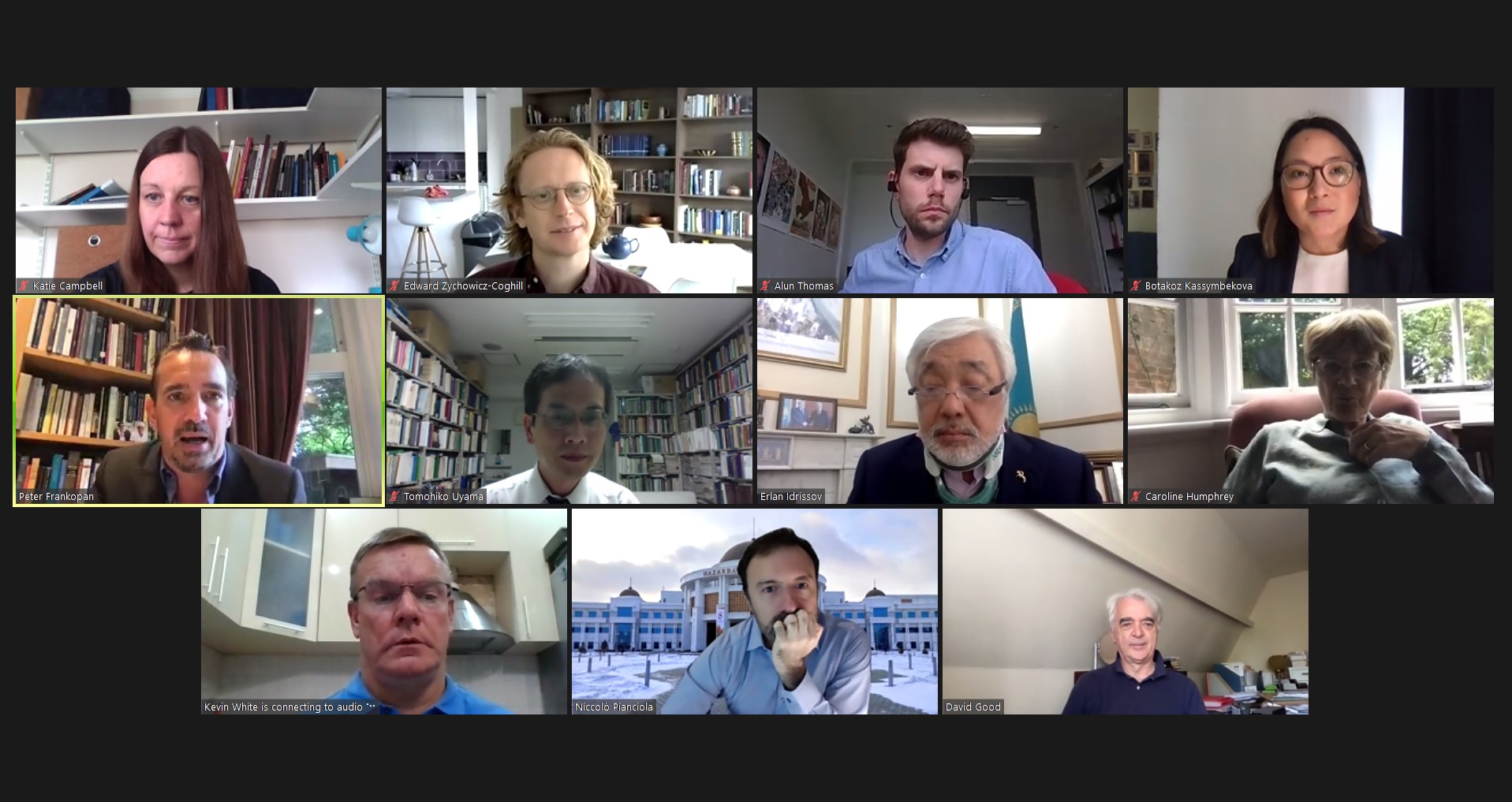Alash Orda legacy in focus of scientific conference at University of Cambridge

London, June 10, 2021 – The achievements and legacy of Alash Orda (Alash Autonomy) became the key topic at the Cambridge video conference dedicated to the history of Central Asia at the beginning of the 20th century. The event was hosted by the Silk Roads Programme at King’s College, University of Cambridge, with the participation of the Embassy of Kazakhstan in the UK.
Delivering introductory remarks, Peter Frankopan, Professor of Global History at the University of Oxford and author of the global bestseller, The Silk Roads: A New History of the World, stressed the importance of studying the history of Central Asia and enhancing research cooperation with the countries of the region.
Erlan Idrissov, Ambassador of Kazakhstan to the UK, noted it is especially relevant that the event is taking place in the year of the 30th anniversary of independence of Kazakhstan and other Central Asian states. He stressed the role of the Alash movement in the formation of ideas of independence and national identity in the Kazakh society up to the present day. He also drew the audience’s attention to the lack of more in-depth and specialised research of the region in Western science and expressed hope that the gap would be filled, including through similar events.
Professor Tomohiko Uyama of Hokkaido University, who specialises in the history of ] Kazakh intellectuals from the 19th century to the early Soviet period, provided a brief history of Alash Orda. He spoke about the influence of Alash members not only during and immediately after the revolution of 1917, but also in the later Soviet period.
“After Stalinist repression until perestroika, the Alash Orda was almost erased from the history of Kazakhstan and numerous pieces of literature by its activists were forbidden. However, we must not forget that Kazakh communists in the 1920s learned much from the former Alash leaders and shared their aspiration to develop Kazakh statehood, culture, and society,” he said.
Dr Alun Thomas, Lecturer at Staffordshire University, presented a paper on his new research in collaboration with Harvard University on mapping border attestations within early Soviet Central Asia. The ultimate goal of the study is to create a digital historical gazetteer that will track changes in borders over time and determine what economic, political, legal, and other events and causes correlate with those changes. The aim is also to put the territorial changes in Central Asia in a broader, global historical context.
Niccolo Pianciola, Associate Professor of History at Nazarbayev University, focused on the social history of cross-border interregional exchanges based on the study of trade exchanges between the Russian Empire and the early Soviet Union with China.
Dr Botakoz Kasymbekova, Postdoctoral Research Fellow at the Institute of History and Social Sciences at Liverpool John Moores University, spoke about the administrative, legal and ideological aspects of administering the territory of early Soviet Central Asia.
During a Q&A session, participating scientists were particularly interested in the significance of geographical borders for Alash Orda, the process and consequences of centralisation in early Soviet Central Asia, as well as the availability and state of exploration of archives located in the region.